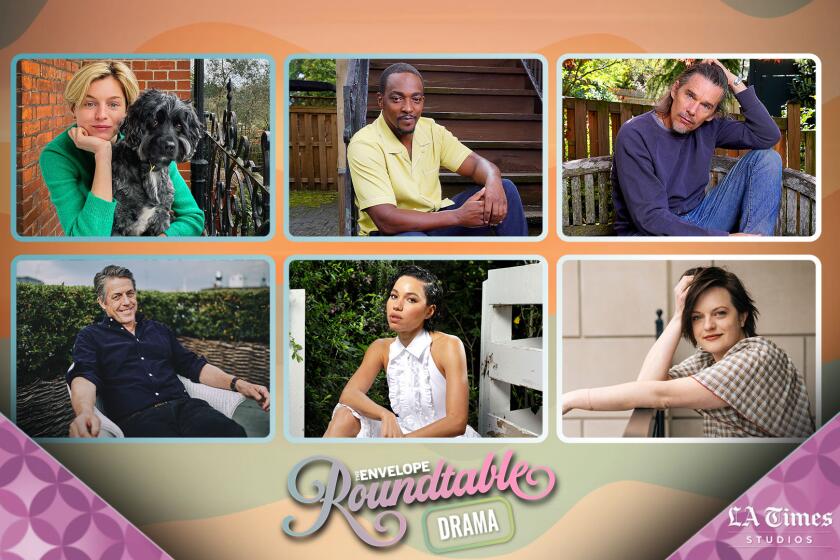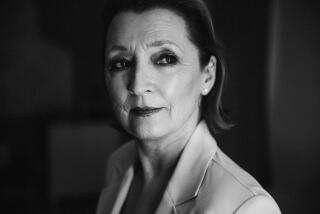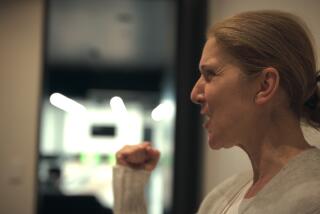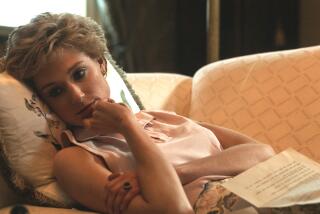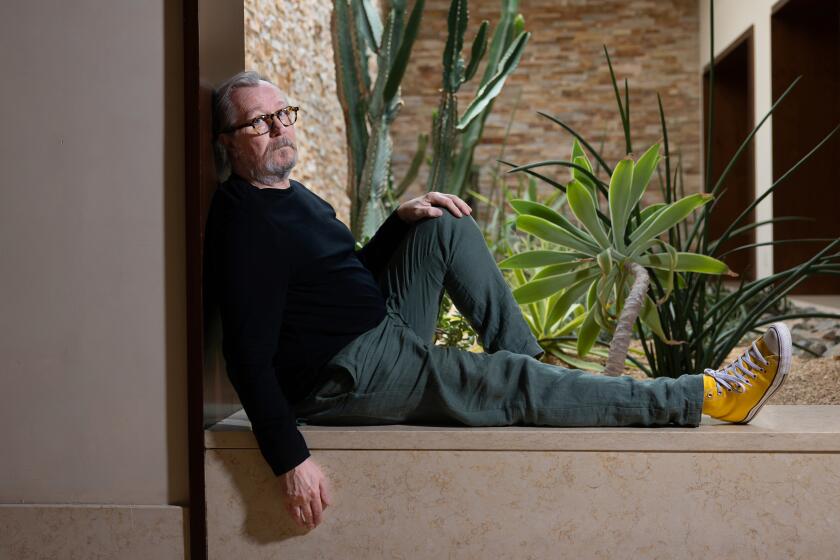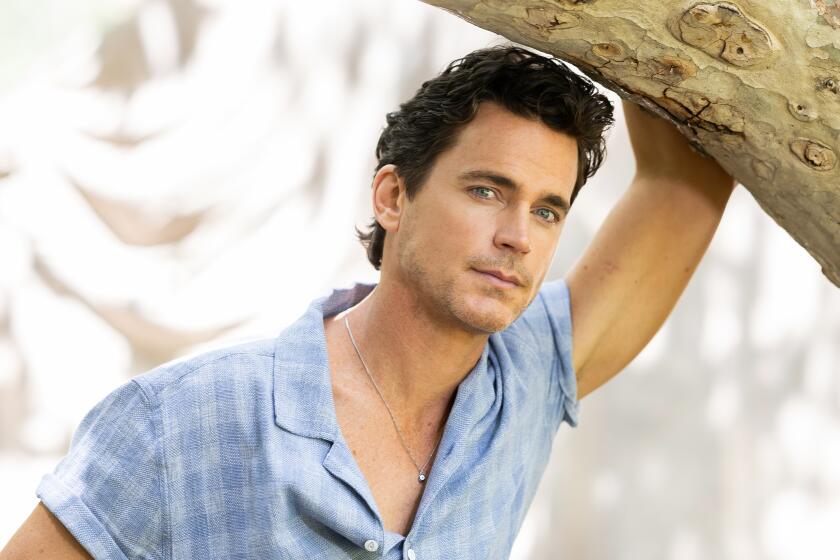Words from Mum help Emma Corrin overcome her struggles on ‘The Crown’
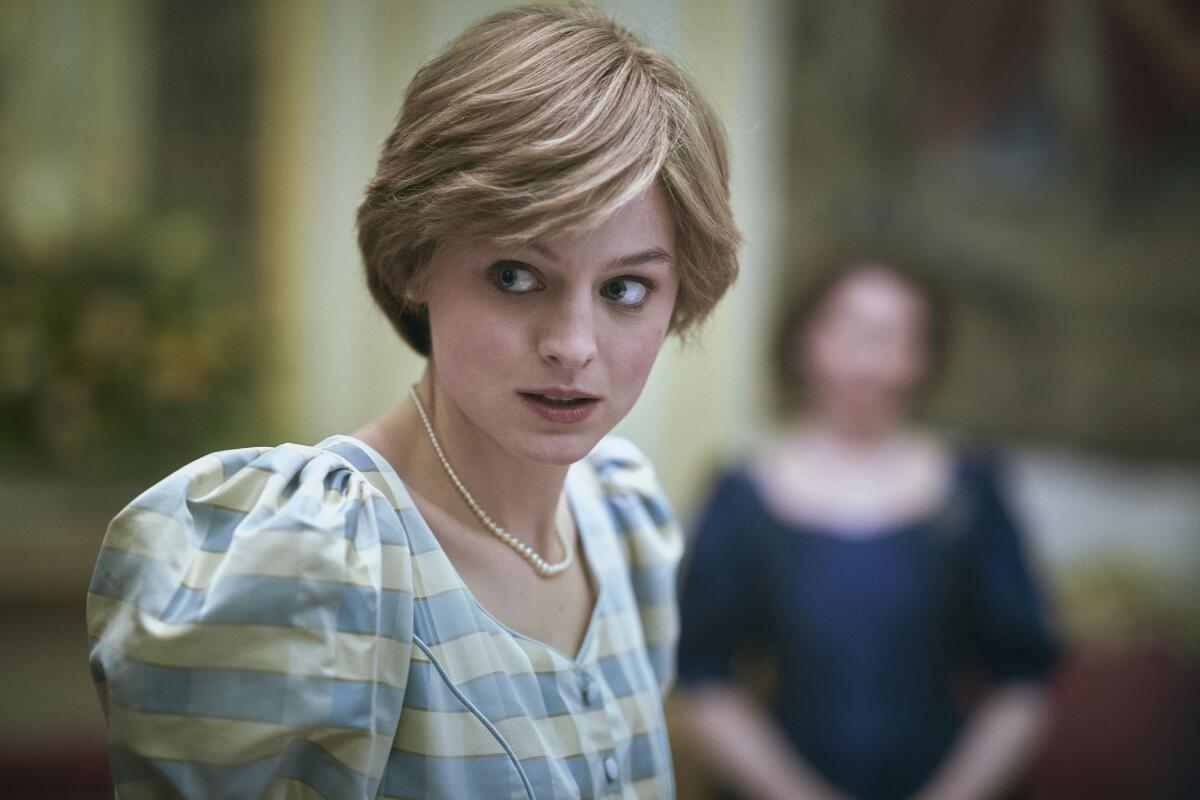
In 2018, Emma Corrin, a new Cambridge drama school graduate with few professional credits, was urged by her agent to take an entry-level gig reading lines with five actresses up for the role of Camilla Parker Bowles in “The Crown.” “She said, ‘It’s kind of perfect: a no-pressure audition in front of some of the most influential people in TV,’” says Corrin.
High five to her agent for the maximize-the-moment strategy, because Corrin’s quakingly vulnerable take on Diana, Princess of Wales, for the line readings caught “The Crown” producers’ eye. Last November when Season 4 dropped, there Corrin was, capturing all of Di’s isolation and loneliness, winning critical acclaim and, later, a Golden Globe.
“It’s been exhilarating” Corrin says over Zoom, perched on a gray couch in her north London flat. Suddenly, she topples sideways to stretch out like an exhausted teenager. “It’s really set the bar quite high,” she says, hours before dashing over to the West End to star in “Anna X,” a play based on the exploits of faux German heiress Anna Sorokin. “I now feel drawn to projects where I bite off a bit more than I can chew.”
I assume getting cast as Diana comes with expectations.
Everybody was always saying to me, “Oh, you’re going to do her head tilt,” or “You’re going to do that thing where she looks above her fringe.” I didn’t want to do any of those things if I didn’t understand why she was doing them.
Talk about working with the great movement director Polly Bennett.
One of the things Polly said to me was, “Everyone I’ve worked with so far in ‘The Crown’ has decided what kind of animal they are — it really helped them get into character. What kind of animal do you think Diana is?” and I said [confidently], “A deer caught in the headlights.” And Polly was like, [flatly] “No. Absolutely not. Go away and think about it.” I thought, “Oh, God. I just failed at Diana school.”
Emma Corrin, Hugh Grant, Ethan Hawke, Anthony Mackie, Elisabeth Moss and Jurnee Smollett take us behind the scenes to talk narcissists, grandparents and delivering meaningful work.
How did you restore your good name?
At the time, I’d just got a new puppy. There was a cat next door who’d come sit on the wall of my little garden. One day while it watched my puppy, it did this [Corrin tilts her head quizzically]. I thought, “Oh, that’s quite Diana.” Then I Googled lots of cat behavior videos on YouTube. Apparently, cats are very, very curious and have a mysterious power that draws people to them.
Stage acting and TV acting being very different, share a story about that transition.
[Director] Jess Hobbs and I were doing a tiny scene where I’m looking out the window watching Charles after a big argument we had about Camilla. We’d done a few takes, and Jess said, “Why don’t you try doing nothing with your face?” So I literally did nothing. Then we watched it back. Whoa. There was a subtlety that spoke volumes. That was such a good lesson in the craft of doing nothing. With “The Crown,” you see lots of older actors who are wonderful at it. By virtue of the story, you know what they’re feeling. It can be so powerful, that stillness.
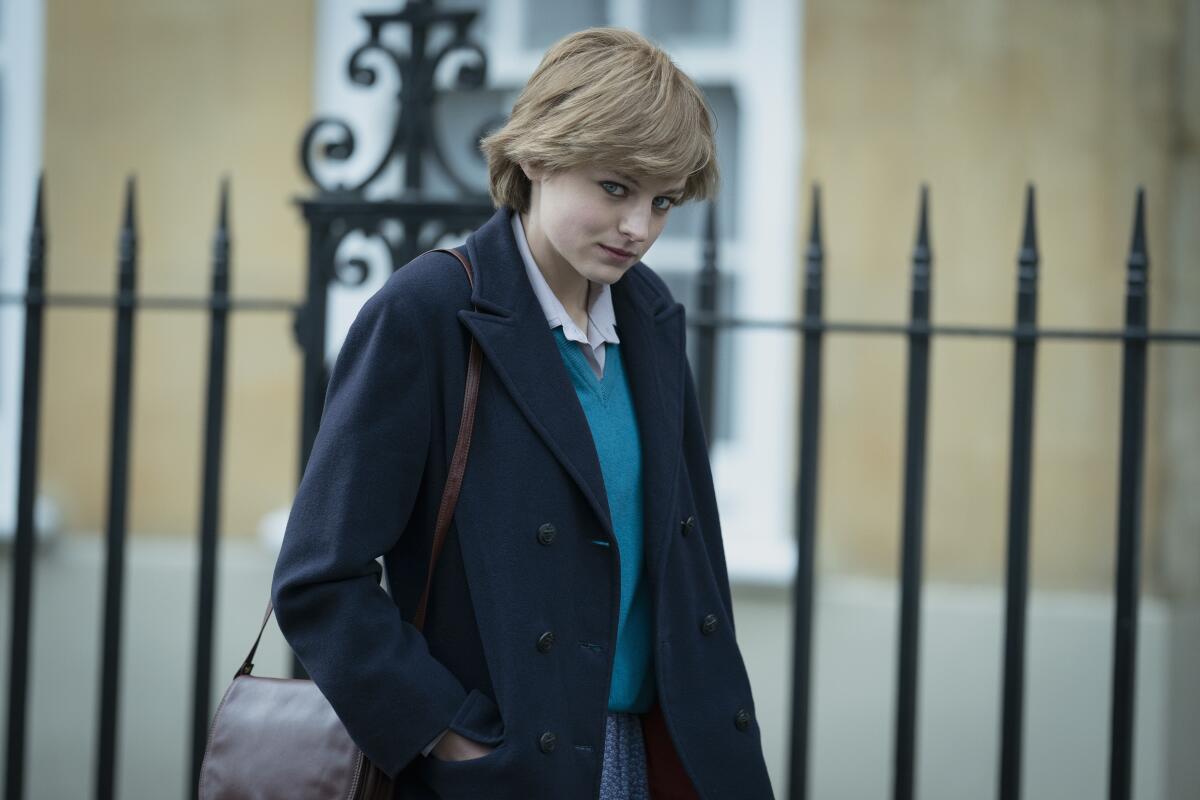
What’s it like being a newcomer expected to keep up with England’s best actors?
There’s a scene where Diana is having her first dinner at Balmoral, my first big scene with everyone. I didn’t really know anyone super well at that point. I had this big story to tell about hunting, a real tongue twister. And I just couldn’t say it. We just kept doing takes, and every time I tried, I’d get a word wrong. I wanted to die. It was mortifying. I remember I went to the toilet, called my mum in tears, and said, “This is really hard. I shouldn’t be here.”
And Mum said?
She was like, “Remember: This [has] happened to them — and will still happen to them. So just lean on them.” And I did. I went back and sort of opened up and said, “I’m really struggling. I’m really scared,” and they were all really sweet. Then I did it and it was fine.
Looking back, do you think Diana was misunderstood?
I think she was misunderstood by the royal family more than she was by the public. The royal family just expected her to suck it up and be able to deal with everything, whereas the public welcomed her and understood the pressure she was under.
A pressure you can relate to, I’m sure. One day you’re a regular pedestrian. The next day paparazzi are selling photos of you doing whatever.
I remember when we were filming that scene where she leaves her flat for the last time, and she walks out with loads of paparazzi around the car. It was a mad setup: There were the paparazzi played by [extras] around the car, then a barrier. Beyond that there were tons of [real] paparazzi there for me. It was so weird. It was like, “Guys, can you not see how unbelievably sadly ironic [it is] that we’re making a film about how this woman was hounded within an inch of her life and now you’re doing the same?”
More to Read
From the Oscars to the Emmys.
Get the Envelope newsletter for exclusive awards season coverage, behind-the-scenes stories from the Envelope podcast and columnist Glenn Whipp’s must-read analysis.
You may occasionally receive promotional content from the Los Angeles Times.
